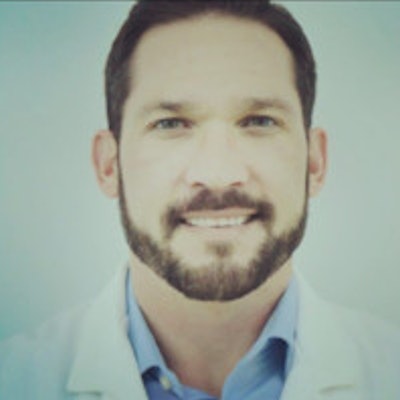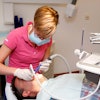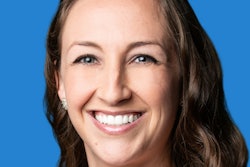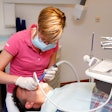
Steven JC Dunn, RDH, became a dental assistant and then a dental hygienist to help people. He joined a dental service organization (DSO) because of the business mindset and opportunities he could potentially have throughout his career in various locations.
Dunn, who received his bachelor of science degree in dental hygiene from the University of Oklahoma, currently works for Aspen Dental in Owasso, OK, a suburb of Tulsa.
 Steven JC Dunn, RDH.
Steven JC Dunn, RDH."Working for a DSO has been great for me," Dunn said. "I've been in the corporate dental office setting for four years now. With Aspen Dental and their 800-plus offices nationwide, I have a wide range of opportunities if I did want to move to different areas of the country."
Dunn has worked for both a private practice and DSO and says there are differences in the mindset of the business every day.
"Just from my personal experience, I think it's easier for the corporation to be able to break down those barriers that exist in a private dental office," Dunn explained. "I think private dental offices get stuck in one kind of frame of mind with patients and the corporation actually sees them more as a whole."
Dunn, who has worked with Aspen for five years, said he knew some of the negative preconceptions about working in a DSO before he joined one. However, he's found reality to be nothing like the myths he heard early on in his career.
"You know there was hesitation. There is always for some reason," Dunn said about the moments when he was deciding whether to work for a DSO. "I don't know where it came from but, for some reason, there is always this black cloud when we talk about the corporate dental office in hygiene school. You know it's, 'Steer clear. Go away. Don't take the bait.' So, yes, there was hesitation going into that, but all those hesitations quickly went away as soon as I got into the corporate world. It's not scary like other people tell it is."
One of the biggest positives in Dunn's mind is the autonomy he has every day. That includes appointments that can be shortened or lengthened depending on an individual patient's oral health needs.
"I'm in charge of my own schedule. I'm in charge of my own budget," he explained. "I order my own supplies. I schedule my own patients. I confirm my own patients. If I want to hit a goal or hit a production-based goal, I set that goal. So it's really the autonomy that's up to me to figure out how I want to run my business and how successful I want my business to be."
The business mindset plays a big role in Dunn's everyday activities, but he also balances that with his passion for helping patients improve their oral health.
"They [Aspen] really do give hygienists the autonomy to run their own business," Dunn said. "So that opens so many doors to standard of care and increasing the bar with regard to standard of care.
"Private offices, I think that a lot get in this one mindset. Adult prophylaxis, you know, that's what we do. But as a corporate office, like I said, that standard of care is raised, which is a good and a bad thing. It's packed with people who have always been in a private office setting and then they go to a corporation and they hear 'gum disease' and all sorts of different things that they never heard before. It's a double-edged sword, but the fact of the matter is that it is what's best for the patients. It's best to create a standard of care and stick to that."
Dunn's advice to other hygienists when it comes to DSOs is simple.
"You know, my advice will be don't be scared. Try something new. You could always go back to private office," he said. "You know, you're never closing the door. There will always be another door that can open in front of you, so don't be scared. Try it out."
Dunn also emphasized trying out different things. "Try out public health. Try out the private sector. Try out corporate. Try out hospital settings," he said. "Try out every avenue because not just one place is going to be right for everybody. So try it and then find what works best for you."



















